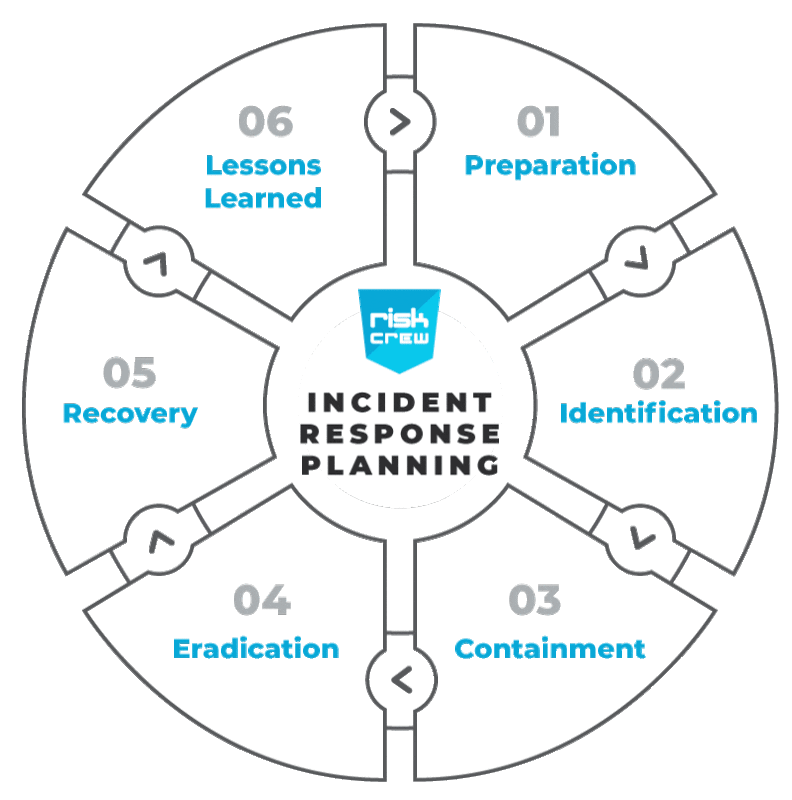Summary of the ISMS
A good incident response plan begins by providing a summary overview of the information security management system (ISMS) — that the business has put in place to ensure data protection and identify, minimise, and manage the risk of a security breach.
Risk Appetite Assessment
The plan should cite the business’ risk appetite, tolerance, and capacity for a breach and reference all applicable policies, procedures and controls implemented to ensure the risk strategy is executed. The preparation component of the plan should align documented policies with security goals and technological controls.
Incident Response Team Roles
The plan should identify the incident response team (or applicable stakeholders) documenting their specific roles and responsibilities in implementing the plan.
Awareness Training Confirmation
It should also confirm that all staff have received appropriate cyber security awareness training regarding current threats and what they look like and that they understand the definition of a security incident and the specific procedures for reporting one if identified.



